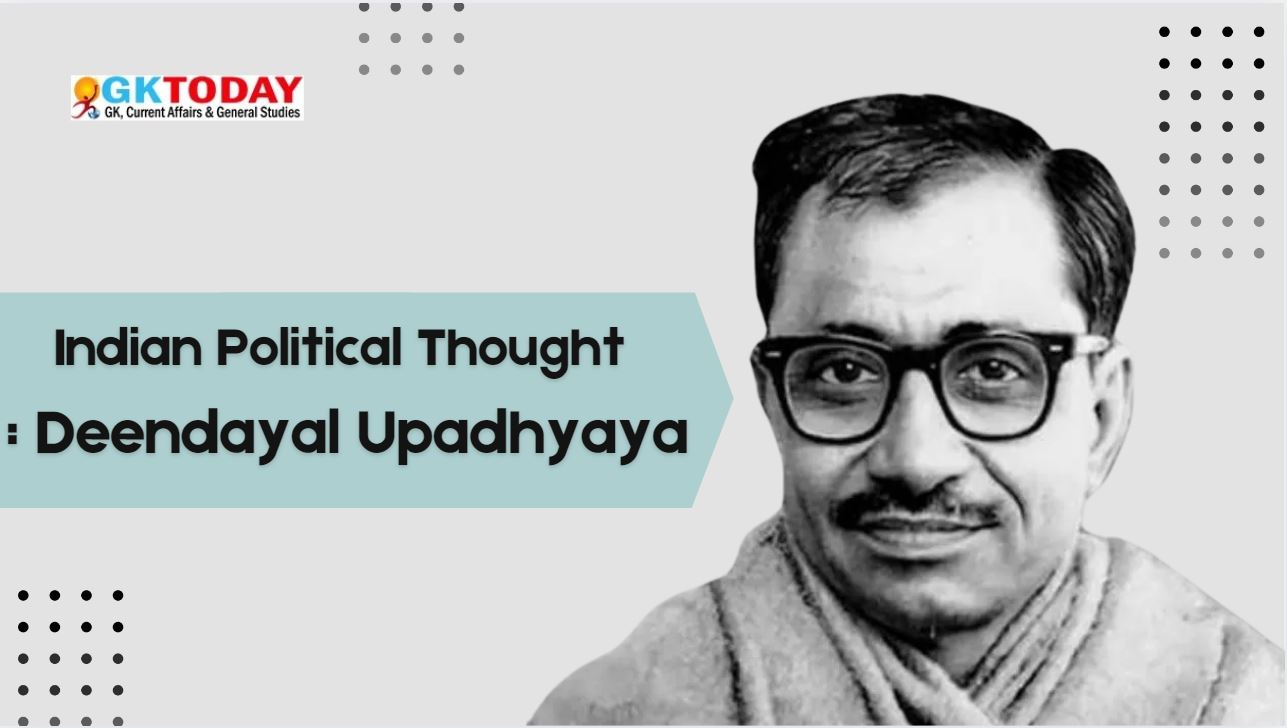Deendayal Upadhyaya – Study Notes for UGC-NTA NET Political Science
Deendayal Upadhyaya was an influential Indian political thinker and leader, whose ideas shaped the political landscape of India. He is best known for his philosophy of Integral Humanism and his role in the formation of the Bharatiya Jana Sangh, which later evolved into the Bharatiya Janata Party (BJP).
Biographical Overview
Deendayal Upadhyaya was born on September 25, 1916, in a small village in the Mathura district of Uttar Pradesh. His early education took place in local schools, where he was influenced by nationalist ideas. He graduated from the University of Lucknow, where he deepened his understanding of political philosophy. Tragically, Upadhyaya died in a train accident on February 11, 1968, in Patna.
Political Involvement
Upadhyaya’s political journey began with the Rashtriya Swayamsevak Sangh (RSS), which he joined in 1937. His involvement in the RSS laid the foundation for his future political activities.
Bharatiya Jana Sangh
In 1951, Upadhyaya played important role in the formation of the Bharatiya Jana Sangh. This party aimed to promote Hindu nationalism and was a response to the political climate of the time. In 1967, he became the president of the Bharatiya Jana Sangh, solidifying his leadership role.
Philosophical Contributions
Deendayal Upadhyaya introduced the concept of Integral Humanism in 1965. This philosophy sought to address the complexities of human development through a holistic lens.
Key Tenets of Integral Humanism
Integral Humanism is characterised by several key principles:
- Unity of the Individual and Society: Upadhyaya advocated for a balance between individual aspirations and societal needs.
- Cultural Nationalism: He emphasized the significance of Indian culture and values in shaping policies.
- Self-Reliance: He promoted economic self-sufficiency and sustainable development practices.
Key Works
Upadhyaya’s writings and speeches are fundamental to understanding his ideology.
Major Publications
His seminal work, “Integral Humanism,” published in 1965, outlines his philosophical stance. He further elaborated on his ideas in “The Philosophy of Integral Humanism.” In addition, he contributed numerous articles and delivered speeches addressing socio-political issues.
Political Ideology
Upadhyaya’s political ideology is rooted in cultural nationalism, which distinguishes it from Western models.
Cultural Nationalism
He advocated for a nationalism that is deeply connected to Indian culture and heritage. This approach contrasts sharply with Western ideologies, which he critiqued for their materialistic tendencies.
Critique of Western Ideologies
Upadhyaya was critical of both Marxism and capitalism. He believed these ideologies failed to address the spiritual and cultural needs of individuals. He proposed a third way that emphasised human values over material wealth.
Social Justice
He brought into light the importance of social justice and the upliftment of marginalised communities. His vision was to integrate these principles within the framework of Indian culture.
Legacy
Deendayal Upadhyaya’s influence extends far beyond his lifetime. His ideas continue to shape contemporary Indian politics.
Influence on BJP
His philosophical contributions laid the ideological foundation for the Bharatiya Janata Party (BJP). Many of his principles are reflected in the party’s policies and approach.
Cultural Impact
Upadhyaya is recognised as a key figure in the revival of Hindu cultural identity. His emphasis on cultural nationalism has resonated with many Indians.
Institutions
Numerous institutions and organisations have been established in his name. These entities promote his philosophy and continue to disseminate his ideas.
Recognition
Upadhyaya’s contributions have been acknowledged posthumously through various awards and recognitions.
Posthumous Honors
The Deendayal Upadhyaya National Welfare Award is one of the many accolades conferred in his memory. This award recognises individuals and organisations working for social welfare.
Statues and Memorials
Across India, numerous statues and memorials honour his contributions. These serve as reminders of his impact on Indian politics and society.
Contemporary Relevance
The relevance of Upadhyaya’s ideas persists in modern political discourse.
Political Discourse
His philosophy continues to influence right-wing politics in India. Discussions around nationalism often reference his work.
Development Models
Integral Humanism is frequently cited in debates about sustainable development and governance. His approach is considered by some as a model for addressing contemporary challenges.
Criticism
Despite his influence, Upadhyaya’s ideas have faced criticism.
Debate on Nationalism
His concept of cultural nationalism has been critiqued for its exclusionary tendencies towards non-Hindu communities. Critics argue that this approach may encourage division.
Economic Policies
Some economists contend that his ideas may not adequately address modern economic challenges. They argue that a more nuanced approach is necessary to tackle contemporary issues.


